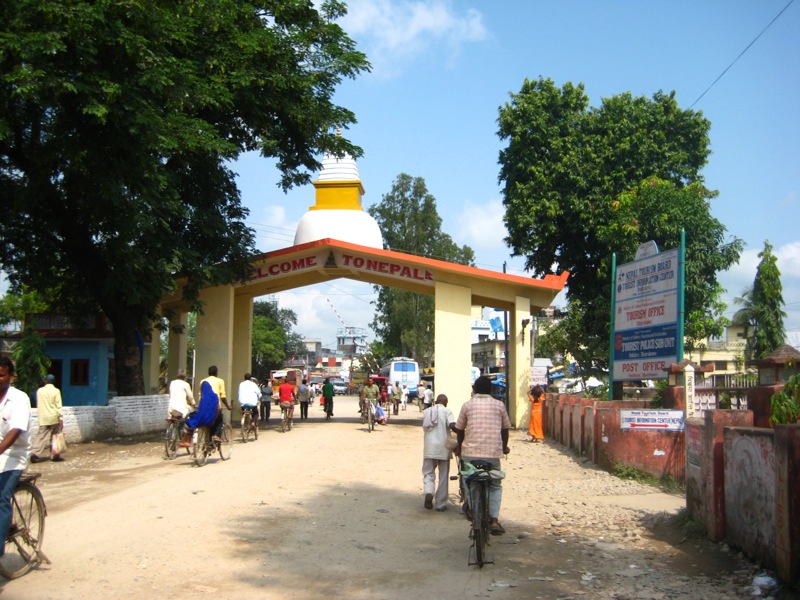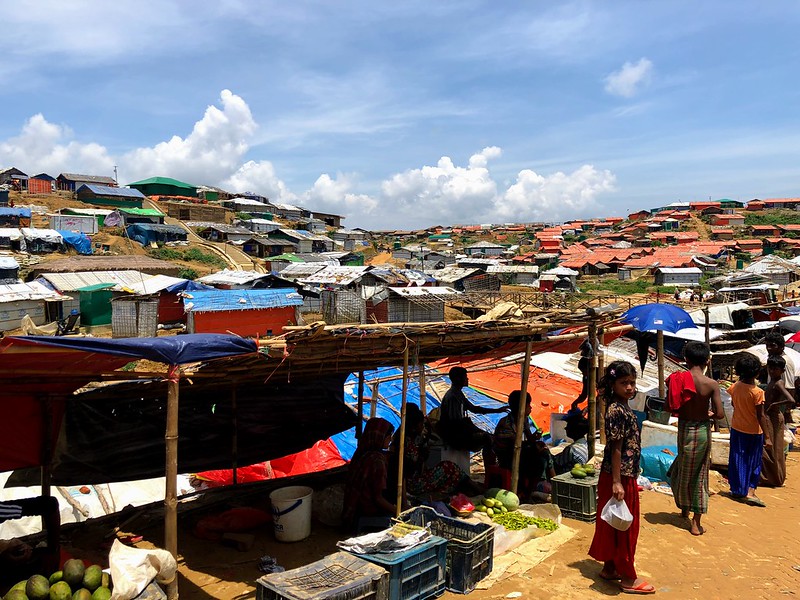The outbreak of Covid-19 is a global health problem but its solutions might be regional. Abhishek Trvidei (South Asian University, New Delhi) argues that in the wake of the unprecedented challenges posed by Covid-19, SAARC countries should capitalise on their public commitment to working together by focusing on the urgent development of new normative and institutional regional arrangments to fight the virus.
The epicenter of Covid-19 looks to be rapidly shifting towards South Asia. At the time of writing, evidence for this can be found in nearly every country in South Asia: more than 1,700 cases are reported so far in India; Pakistan has reported confirmed cases of around 1,900; Sri Lanka and Afghanistan around 100; Bangladesh approximately 50; the Maldives around 17; and Nepal and Bhutan around four each. Unfortunately, these numbers are anticipated to increase.
Covid-19 has given one clear political message to the international community: it has the capacity to infect any human being across national boundaries, without any discrimination based on religion, race, caste, creed, or political opinion – Covid-19 does not understand the language of sovereignty.
On 15 March, member states of the South Asian Association for Regional Cooperation (SAARC) held a video conference to discuss measures to contain the spread of Covid-19 in the region. All member states agreed that they must ‘prepare, act and succeed together’ to fight the spread of the pandemic in the region. They recognised the urgency of regional cooperation and Covid-19 responsive measures. Furthermore, they emphasised the need to ‘analyse and address the long-term economic consequences’ of the pandemic in the region. Finally, member states agreed to speed up the consultations at the ministerial level and to formulate a ‘comprehensive regional strategy’ against Covid-19.
In their video conference, SAARC leaders also created a Covid-19 Emergency Fund, made up of voluntary contributions from member states. During the meeting, India pledged $10 million, Sri Lanka $5 million, Bangladesh $1.5 million, Afghanistan $1 million, Nepal $1 million, the Maldives $200,000, and Bhutan $100,000. This emergency fund is therefore worth around $18.5 million, with contributions from all SAARC members, except Pakistan.
For SAARC countries to build on this commitment to work together during this crisis, it is imperative for the bloc to develop the normative framework and institutional arrangements required to deal with the unprecedented threat posed by the outbreak of Covid-19. This development should expand on the existing international health framework, created by the World Health Organisation’s 2015 International Health Regulations (a document created to outline how countries across the world can prevent and control of the spread of a disease); indeed SAARC should seize the opportunity to work together to plug the preexisting gaps in these regulations.
The International Health Security Framework
The international normative framework for health security that the International Health Regulations 2005 (IHR) has created centres around a set of binding global legal instruments, which provide a normative framework for the prevention and control of the international spread of disease.
The WHO, which plays a crucial role in surveillance and risk assessment, uses the IHR framework to require states to notify the organisation of any health crisis occurring within their territory, to collect and provide detailed information of that crisis, and to take a range of measures necessary to control and manage the spread of the disease.
Under this framework, states are also required to develop and maintain their capacities in order to promptly detect, notify, and respond to public health risks and emergencies.
The concept of due diligence, the principle of no-harm, and other related rules of general international law (such as the principle of cooperation and good-faith) and international human rights law (such as right to life and right to health) broadly sit within this framework and oblige states to exercise their best efforts to protect their populations and prevent further cross-boundary outbreaks.
However, this global health framework misses several fundamental features. The IHR framework, for instance, lacks a dedicated funding mechanism and monitoring device for ensuring compliance by different states. Such shortcomings are one of the major challenges in the implementation of responsive health measures and in enhancing the required capacities of states. The WHO has also been criticised (for example, in the case of China) for being prone to political considerations despite its technical and scientific mandate. Transparency issues are also frequently raised regarding WHO’s practice and functioning. As for the rules of general international law, they lack specificity and need to be contextualised with particular mention of health security.
Following SAARC’s recent public commitment to work together to fight Covid-19, it is now SAARC countries (using the SAARC Chater as a basis) that can work together to develop their own regional healthcare framework to plug these gaps.
Developing SAARC’s Regional Framework to Address Covid-19
A new normative framework to fight Covid-19 is necessary for making consensus-based decisions and to follow a coherent regional approach. A new framework would increase the effectiveness both at the decision-making level and at the level of implementation of any health-related measures.
The SAARC Charter, based on the idea of fostering mutual understanding and good neighbourly relations, recognises common problems, interests, and aspirations of the people of South Asia, as well as the need for joint action and enhanced cooperation among member states; it is this charter that can provide a normative framework for South Asian countries to cooperate in the extraordinary situation created by the Covid-19 outbreak. Under the guise of the SAARC Charter, South Asian nations can promote and strengthen collective self-reliance and contribute to mutual trust, understanding and an appreciation of one another’s problems, in a time where the entire region is affected by Covid-19.
SAARC countries can work together to address the Covid-19 outbreak, as well as health-related emergencies in future, by developing a mechanism to assess the risks associated with such outbreaks, measuring their regional impacts. They should cooperate in sharing scientific data and best practice, and to monitor the implementation of any responsive measures taken to limit the spread of Covid-19.
Furthermore, as nations across South Asia will require larger amounts of specific healthcare equipment, other SAARC Agreements, such as the Agreement on South Asian Free Trade Area (SAFTA), and the Agreement on the Establishment of South Asian Regional Standards Organisation (SARSO), can be used to help South Asian countries quickly remove any technical barriers to trade, facilitating the flow of goods and services in areas that are significantly affected by Covid-19.
At an institutional level, SAARC already has dedicated mechanisms to enhance cooperation during the crisis: the Standing Committee, different Technical Committees, Action Committees, and the Secretariat are all in a position to be responsible for the implementation, coordination, and monitoring of the Covid-19 health programmes across the region.
Should more money be required, the SAARC development fund is on hand to provide extra financial assistance.
South Asian countries can manage this unprecedented threat collectively; as doing so would not only be in their national interests, but would also improve bilateral (in case of India and Pakistan) and multilateral (in case of SAARC as a region) relations, and deepen their mutual understanding in terms of combating against the pandemic, strengthening the international and regional cooperation, and adopting and implementing the national and international responsive measures available.
To this end, South Asian countries should act decisively and cooperatively, as a matter of urgency. Such coordinated efforts could herald new opportunities for the regional bloc to collaborate in a meaningful and long-lasting way.
This article gives the views of the author, and not the position of the South Asia @ LSE blog, nor of the London School of Economics. Featured photo: Covid-19 Virus. Credit: The Digital Artist, Pixabay.







